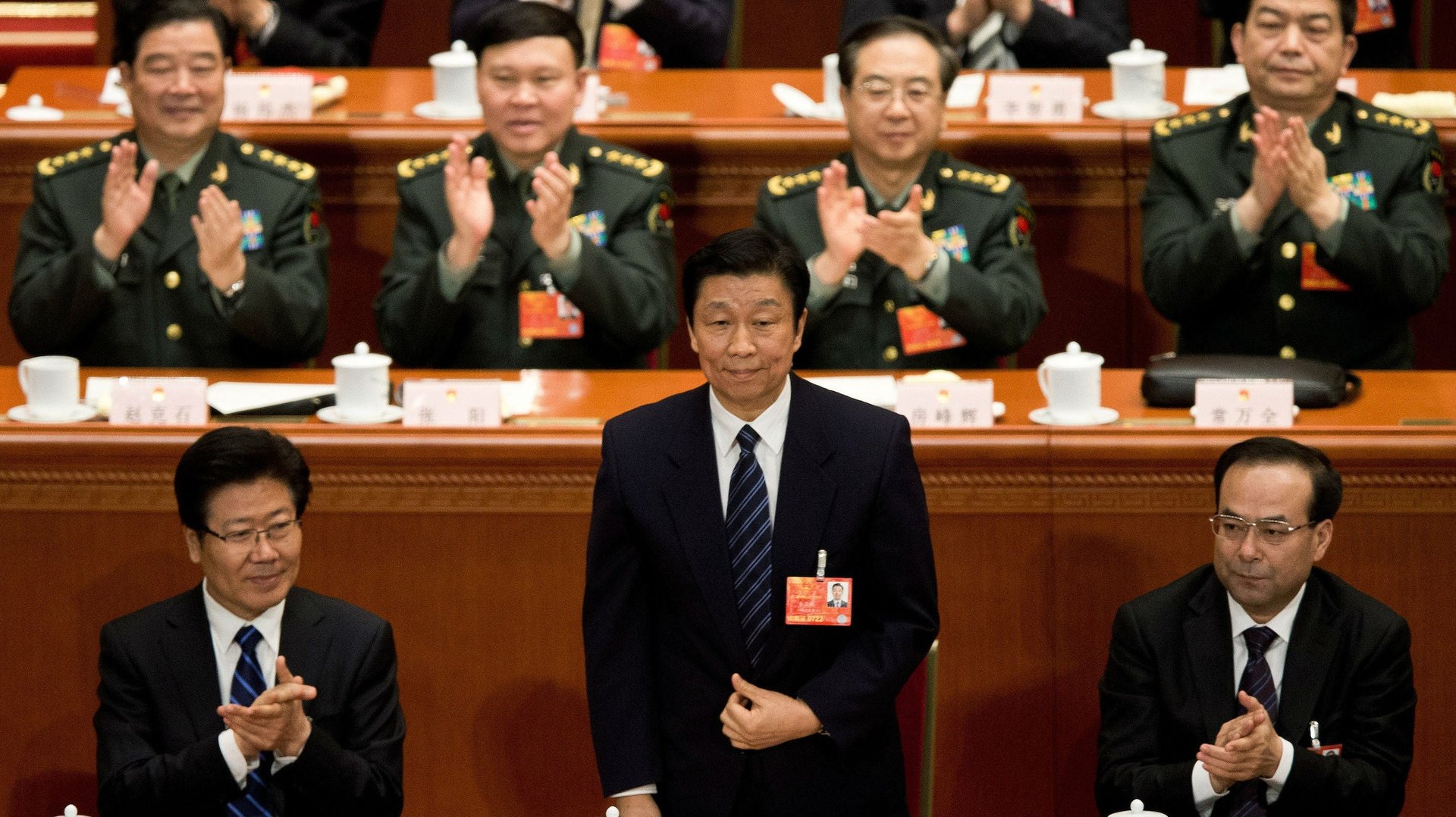China’s new vice president is a hopeful sign for reformers
Here’s a bit of hopeful news out of China’s parliamentary congress today: Li Yuanchao, one of China’s more progressive senior officials, has been tipped as the country’s next vice president.


Here’s a bit of hopeful news out of China’s parliamentary congress today: Li Yuanchao, one of China’s more progressive senior officials, has been tipped as the country’s next vice president.
Li’s appointment—or “election,” according Chinese state media—is a sign that a more reformist agenda may be possible in this next iteration of Chinese leadership. Here are three things his vice presidency tells us about China’s opaque and new leadership regime…
Xi Jinping’s got some muscle
China watchers have been saying not to expect bold economic or political reforms out of Beijing any time soon. In a political system centered on behind-the-scenes horse trading, China’s new head of state Xi Jinping needs to consolidate power before pushing through decisions. But it looks like that’s happening. Xi reportedly favored Li for the post, and he won out over party elders who were lobbying for another guy.
China’s veep is a reformist
Li, formerly head of a powerful department that oversees all top personnel appointments, is thought of as one of China’s most open-minded officials. He’s called for intra-party democracy, and is credited with improving living and working conditions for migrant workers and drawing attention to pollution while serving as party secretary in Jiangsu province.
Li’s rival for the post, according to reports, was the party’s propaganda head, Liu Yunshan. Liu helped create China’s censorship system, the world’s largest internet-blocking campaign. He’s known for trying to squash outcry over what residents said was a premature halt to search and rescue efforts after a high-speed train crashed in Wenzhou province in 2011, killing 40.
China’s conservatives may not rule forever
While the position of vice president is mostly symbolic and less powerful than being on the Politburo Standing Committee, it could translate to a little more power for reformers in China’s upper ranks. China watchers have bemoaned the over-representation of conservatives loyal to former Chinese leader Jiang Zemin on the powerful PSC. Li is only on the lower-rung Politburo. (His promotion may have been blocked for reasons ranging from his past praise of fallen party official Bo Xilai, his help covering up the Ferrari crash and death of a senior official’s son, to his failure to act decisively against pro-democracy students in 1989.)
Li’s on-paper duties are to help the president and to take over the post if Xi resigns or dies, but the extent of his influence could expand if Xi wills it. At the very least, Li’s appointment signals that Xi is open to reform and that the new head of state can already use his political clout. It’s a small victory compared to, say, reforming China’s state-owned enterprises, but it’s an early step in the right direction.